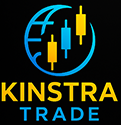Late final week, information was launched that has the potential to disrupt the trajectory of open banking within the US. JPMorgan Chase has been in discussions with knowledge aggregators, telling them that it plans to cost them to entry buyer knowledge.
Historically, knowledge aggregators like Plaid, Finicity, and MX have been capable of entry client banking knowledge for free of charge through the use of login credentials supplied via third-party companies. Introducing charges for this entry raises necessary questions round client knowledge rights, portability, and the way forward for monetary innovation—and will considerably reshape the economics of open banking within the U.S.
Within the US, open banking has largely been formed by the personal sector quite than by authorities regulation. Which means that banks, fintechs, and knowledge aggregators have needed to create their very own frameworks for sharing client monetary knowledge, typically with out clear, standardized guidelines. But client demand for knowledge connectivity has grown quickly. With the rise of third-party fintech apps providing budgeting, investing, and lending companies, people anticipate these instruments to attach seamlessly to their financial institution accounts and ship real-time balances and transaction knowledge. To assist this, banks have historically allowed knowledge aggregators to entry account info both freed from cost or for a comparatively low value.
JPMorgan’s rationale
Whereas JPMorgan’s determination to cost for knowledge entry might not be unreasonable, it did catch many abruptly. The financial institution argues that aggregators are benefiting from its infrastructure with out contributing worth in return. Citing rising infrastructure and safety prices, in addition to a need for better management over how client knowledge is accessed and used, JPMorgan framed the transfer as a mandatory step towards a extra balanced data-sharing ecosystem
“We’ve invested important sources making a beneficial and safe system that protects buyer knowledge,” JPMorgan spokeswoman Emma Eatman informed Bloomberg, which broke the information. “We’ve had productive conversations and are working with the whole ecosystem to make sure we’re all making the required investments within the infrastructure that retains our prospects protected.”
Affect on aggregators
For knowledge aggregators, the information is much from welcome. As one spokesperson famous, their value of products offered has primarily been zero. They cost fintechs for knowledge entry however haven’t needed to pay banks to acquire the information itself. If banks like JPMorgan start charging for that entry, aggregators will doubtless move the added prices to fintechs, which may in the end trickle all the way down to customers.
Implications for open banking
JPMorgan’s announcement comes at an attention-grabbing time for open banking within the US. Part 1033 of the Dodd Frank Act was presupposed to be finalized this October, and lots of have been trying ahead to the readability that centralized open banking guidelines would offer the business. Earlier this 12 months, nonetheless, the CFPB introduced plans to rescind 1033.
No matter whether or not or not formal guidelines are in place, nonetheless, the argument centralizes round an age-old query in fintech–who owns the shopper knowledge? Whereas many banks declare that the patron knowledge belongs to them, some advocacy teams and aggregators declare that buyers ought to be capable of do what they need with their knowledge freely.
Introducing new prices to entry client monetary knowledge may have a number of ripple results on the way forward for open banking within the US:
It might create boundaries for fintechs providing companies that buyers can’t get from conventional banks. This might gradual innovation and cut back incentives for brand new entrants to construct merchandise that meet unmet monetary wants.
Customers could face larger prices as fintechs move on the charges related to knowledge entry. Providers that have been as soon as free or low-cost may develop into costlier, prompting some customers to rethink their major monetary establishment if their financial institution can’t match the performance they beforehand loved by way of third-party apps.
It may speed up the adoption of safer, standardized data-sharing protocols, equivalent to these developed by the Monetary Information Trade (FDX), which goal to interchange legacy strategies like display screen scraping with tokenized, API-based entry.
It may also incentivize extra display screen scraping, as aggregators search methods to keep away from new prices. Whereas most aggregators deal with display screen scraping as a final resort, elevated monetary strain could push some to lean extra closely on automated instruments equivalent to AI brokers to extract knowledge via much less safe channels.
What’s subsequent?
Whereas JPMorgan was the primary to inform aggregators that it plans to start charging, we are able to anticipate extra monetary establishments to make related bulletins. And whereas the CFPB appears unwavering in its determination to rescind the open banking rule because it was stipulated in 1033 final October, JPMorgan could form or strain new regulatory frameworks transferring ahead.
If extra banks undertake related insurance policies and create uncertainty for fintechs and aggregators, we may even see renewed momentum for a revised model of 1033, particularly underneath a brand new administration. As customers, banks, fintechs, and aggregators all start to hunt better readability and consistency, the US may shift towards a extra structured, regulated mannequin of open banking.
Picture by Altaf Shah
Views: 21









